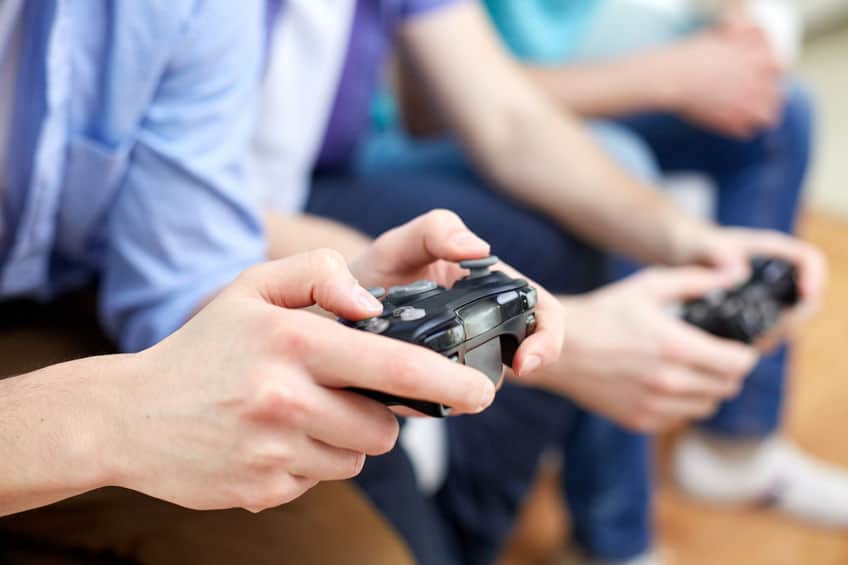
Teen Internet Addiction – It’s Getting Worse
May 31, 2018
While the idea of too much internet use seems to be fairly common among issues that parents face today for their teens, it has not yet entered the realm of being an official medical issue in the 21st century. According to medical professional Dimitri Christakis of Seattle Children’s Research Institute, this addiction, though prevalent among youth, has yet to be recognized as an actual psychopathological affliction within a specified mental framework.
What is being recognized about internet addiction in teens is that it has many parallel symptoms to other psychological disorders such as gambling, drug use, and other addictive behaviors that are already recognized in the medical community. In fact, studies conducted at the Center for Child Health, Behavior, and Development have concluded that 1 out of 3 people consider the internet to be equal in importance in their lives to necessities like water, air, shelter, and food.
Symptoms of Internet Addiction
 Dr. Jaffe and many other psychological professionals have been able to utilize a psychological test known as Young’s Internet Addiction Test which uses a correlative scale to identify certain behaviors related to addiction such as depression, anti-socialness, unsolicited rage, and ADHD and are able to link them to abnormally high rates of internet usage.
Dr. Jaffe and many other psychological professionals have been able to utilize a psychological test known as Young’s Internet Addiction Test which uses a correlative scale to identify certain behaviors related to addiction such as depression, anti-socialness, unsolicited rage, and ADHD and are able to link them to abnormally high rates of internet usage.
With most non-addicts, research by Young and Rogers has shown that internet use falls in the normal range of 8 hours weekly, while an addicted internet user will show internet activity of a minimum of 38-40 hours per week for activities unrelated to school or a job. A parent can look for certain symptoms related to this type of excessive use of the internet as warning signs of internet addiction:
Staying Up All Hours
One thing an internet-addicted teen will want to do is stay logged on to sites nearly 24 hours per day in order to be a part of everything that is happening on the internet. This means that even while you are on your way to bed, your teen is still up staring at their computer. You might try to integrate rules about internet use, but you will find your teen sneaking away to use the internet or hiding the fact that they are on it either by going to a remote area of the house or even sneaking out to use someone else’s computer at odd hours of the day or night.
Anti-Social Behavior
If you find that social activity in your teen’s life comes to a screeching halt, this could be because all his “friends” are now online. Note if they are not talking about social activities out of the home anymore and their peers don’t appear to be coming over or calling them anymore. Also, be aware if they are talking about the same few people all the time yet you never see these individuals in person; these could be internet acquaintances that may not even turn out to be teens but unsavory adults.
Hiding in Their Room
This is one of the most obvious signs of internet addiction since most teens will try to hide the fact that they are on the internet for an inordinate amount of time each day. Note if they begin to lock their door every time they enter their room and then stay in there for an unusual amount of time. Be aware of them asking to be served meals in their room or if they are in their room talking to someone and it is possibly not on their phone but on a headset through the internet. This would also include skipping school or always “feeling sick” and wanting to stay home. Contact the school and find out if they are missing assignments or not showing up instead of staying home on the internet all day.
How Can Internet Addiction be Stopped?
The goal of a residential environment like Hillcrest Adolescent Treatment Center is to help youth who are struggling with finding the willpower to keep the internet from consuming and controlling their lives. Getting them into a treatment center that will individual their treatment plan and set personal goals for them will help them to build the confidence they need to look at the reasons why they have turned to the internet as a safe place to hide what is really other issues in their lives. Getting to the root of the cause of internet addiction is the goal of Hillcrest Adolescent Treatment Center and can be a great start to getting a teen’s life back on track to lead a successful and healthy life.
Sources
Adi Jaffe, PhD.; Internet Addiction: Epidemic or Fad? https://www.psychologytoday.com/us/blog/all-about-addiction/201111/internet-addiction-epidemic-or-fad
Kimberly S. Young; Internet Addiction: The Emergence of a New Clinical Disorder https://www.liebertpub.com/doi/abs/10.1089/cpb.1998.1.237
Kimberly S. Young and Robert C. Rodgers; The Relationship Between Depression and Internet Addiction http://www.netaddiction.com/articles/cyberpsychology.pdf
Dimitri A. Christakis; Internet addiction: a 21st century epidemic? https://www.ncbi.nlm.nih.gov/pmc/articles/PMC2972229/

